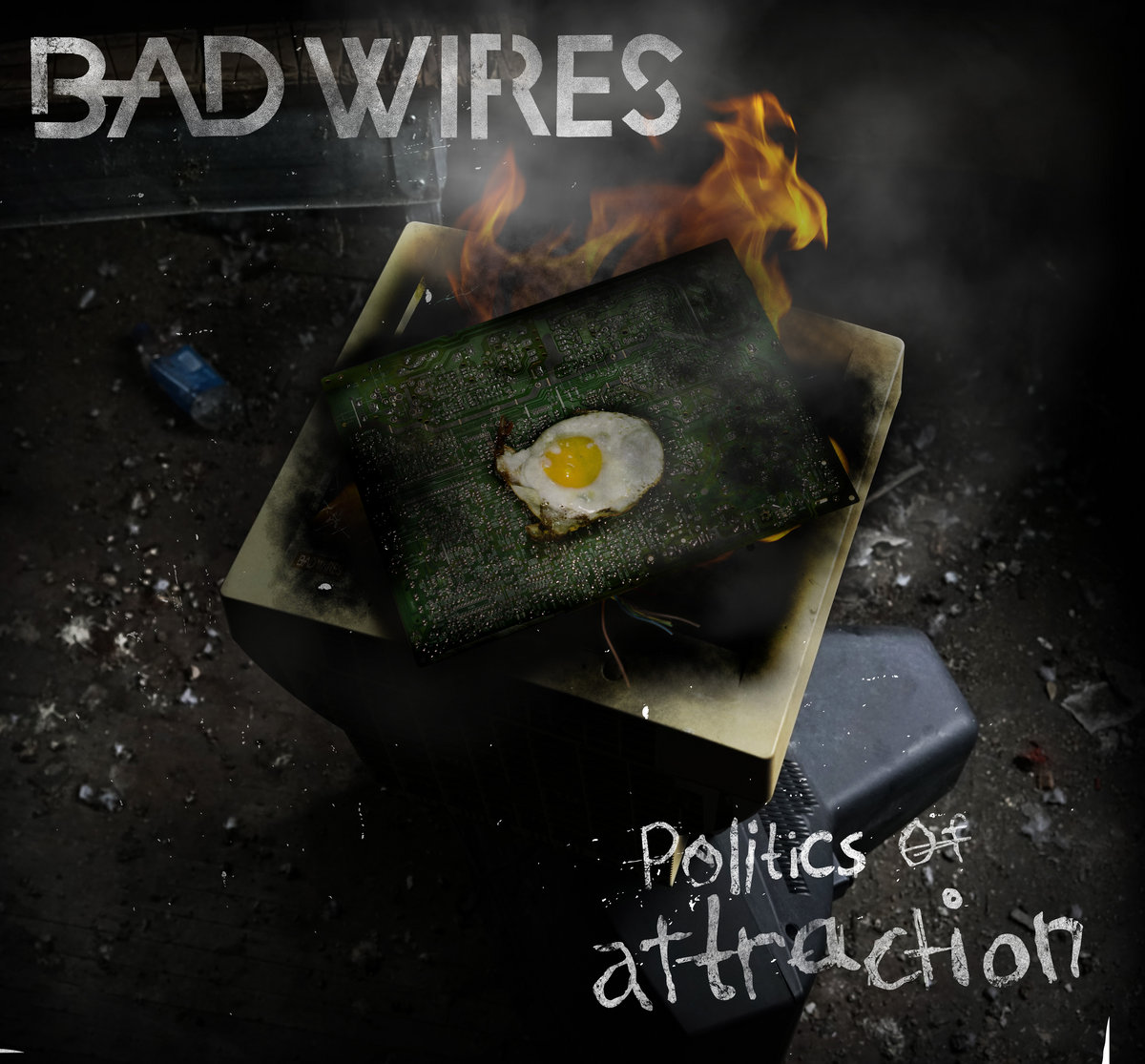Politics of Attraction, the full-length debut from Louisville power trio Bad Wires, is a Frankenstein’s monster of a rock record. The group, technically adept but still engaging in guttural and primal ways, are well-studied pupils and make the proceeds unfurl easily. The LP’s seven tracks offer punk attitude, 1990s New York City noise posturing, a touch of stoner rock, and a much more than a light dollop of metal. Each song is kind of like an island onto itself, and no two songs sound the same.
The band smartly play this up to their advantage, managing to flirt with apocalyptic conceits and bitter refrains while dipping their toes in several genres, keeping it interesting. If nothing else, the record is worth downloading for “Mid Life Crisis”, a seven-minute study in restraint and retraction whose closest cousin is the Bullhead classic “Boris”. Though not as monstrous or skin-singeing as that Melvins standard-bearer, it’s surprising for a band with this short of a CV to crank out something so sparsely illustrated yet so venomous.
Those looking for high-water marks don’t have to look far. The introduction to “You Call This Lupus” before it descends into frenetic madness, makes all the grand gestures toward 1970s stadium-rock – with what sounds like a cowbell included herein to complete the full-color portrait. “Attention Economy”, one of the record’s many satirical jabs at Trump’s America teetering on the brink of something foreboding, hints at the punchy noise-rock of Austin’s Exhalants and will nag listeners to crank up this thing to 11.
Then, there’s a song like “Hail the Unholy”. While the title and the song’s caterwaul of a shredding guitar solo owes outstanding debts to the metal of late-era Corrosion of Conformity, the bass and drums are more raw-nerved and less conscious of playing it according to genre boundaries, calling to mind Tod A. and Phil Puleo, back when they played without a guitarist. The fascinating thing is to hear how accurately Bad Wires flesh out these idioms – the metal guitar solo on “Hail the Unholy” is quite good, but it doesn’t take away from the noisy, counter-rhythmic punch of the bottom end, which at times feels like it’s almost outing a different song altogether. At times, these guys hint at the Stooges energy of Louisville’s WiiRMZ; elsewhere, they sound like they aspire to follow in the footsteps of Kyuss.
Some moments stretch the genre-blurring a little bit tight. “Dark Arts” owes a lot to Black Sabbath and Motörhead – proficient, yes, but above all else, furious. Sadly, though, the song’s noise-rock vocal leads are muddy and slightly lost in the mix. “Come Down Off Your Mountain” is truly Mountainous, Leslie West connotations intact, but listeners probably would get off from more stomping and less guitar-flash. When the band gets down to business, the bass notes hammering on over light-footed percussion as a guitar screeches out avant-noise nearby, you’ll wonder where these guys have been hiding.
The answer: they’ve been hiding in plain sight. Bassist/frontman Corey Cottrell led two-piece MegaZilla in Austin and spent six years playing with former Melvin Mark Deutrom in Bellringer and County Bucks. Guitarist Conner Johnson was flashy in Louisville staples Stagecoach Inferno before joining Bad Wires. New drummer Jerry Wilcox was added to the mix as COVID-19 tightened its neck-hold on the Western world. Bad Wires also haven’t hesitated to flash their Louisville cred, recording Politics of Attraction with local engineer Howie Gano, best known as a David Grubbs go-to and the man behind recordings of Squirrel Bait and Bitch Magnet.
But the music is particularly not of a location, not of a scene. In advance materials for the LP, the band say that they “strive to make music they will still want to listen to in 20 years, assuming society is still around in 20 years”. That kind of negative outlook, paired with more than a fair share of dirge and doom (and volume), gives you a better sense than anything we could write about what to expect from these guys. You should expect it in spades. — Justin Vellucci, PopMatters, Oct. 13, 2020
-30-




